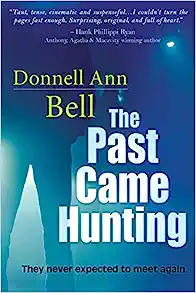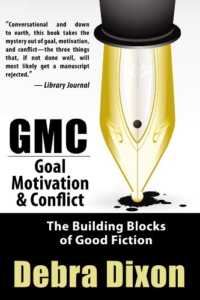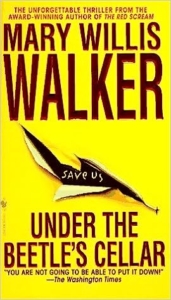The Element of Surprise

Remember the American Express Card slogan, “Don’t leave home without it?” Great slogan but as a writer, I have a different take on the saying. “Don’t publish without an editor.” There are different types of editors. A few that come to mind are developmental, copy editing, and proofreading. Many authors rely on their agents to go over their manuscript with the proverbial fine-tooth comb before submission.
I go through these stages, too, when I submit for publication. In truth, I’ve only had two “overall” editors in my fiction career. Despite having a fabulous critique partner and beta readers, my editors are the ones who discovered plot holes I’d never considered on my own. Could it be they’ve pored over a few manuscripts in their day?
Pat Van Wie was my first editor. Pat is a multi-published author and writing instructor.  https://patricialewin.com/ She writes in two genres as Patricia Lewan and Patricia Keelyn. As a brand new author, I learned much from Pat. One is an issue that arose in my debut novel, The Past Came Hunting. In TPCH, my protagonist Melanie Norris is an ex-con determined to keep her stint in prison a secret from her son. As the story progresses, she is no longer the mixed-up runaway who left home at seventeen. The grownup Melanie obeys the law.
https://patricialewin.com/ She writes in two genres as Patricia Lewan and Patricia Keelyn. As a brand new author, I learned much from Pat. One is an issue that arose in my debut novel, The Past Came Hunting. In TPCH, my protagonist Melanie Norris is an ex-con determined to keep her stint in prison a secret from her son. As the story progresses, she is no longer the mixed-up runaway who left home at seventeen. The grownup Melanie obeys the law.
Except one. This law states convicted felons can’t possess firearms and creates a problem for Mel. Particularly when she learns Drake Maxwell, the man with whom she’s accused of committing the crime, is scheduled for release. Maxwell has promised retribution. Mel breaks her own code by locating her deceased husband’s Smith and Wesson revolver and keeps it close by in case she needs it.
I’m sure my goal when I wrote the book was to show how afraid she was of Maxwell and point out to the reader how much she’d changed.
What did my editor have to say about it?
Pat Van Wie’s comment: “What does she do with the gun?”
Me: “Nothing. She’s an ex-con; she can’t own one.”
Pat Van Wie: “Do something with that gun.”
That’s it? Do something? She might as well have told me to cut off an appendage. Most authors will agree when you add or delete a thread to the story, it’s not always a simple fix. It often involves pages of rewriting. Pat’s question created a plot problem that left me with some sleepless nights. Something tells me that was the idea because my muse took it from there.
What was the result? Revealing what Mel does with that gun created a deeper level of trust between my protagonists and strengthened their relationship. It also created one of the most poignant and romantic scenes I’ve ever written.
Today, Debra Dixon is my editor. She’s also the publisher of BelleBooks/Bell Bridge Books and is the renowned author of GMC: Goal, Motivation, and  Conflict. When people refer to respected craft books, Goal Motivation and Conflict is listed at the top among Dwight Swain’s Techniques of a Selling Writer and Joseph Campbell’s The Heroes Journey.
Conflict. When people refer to respected craft books, Goal Motivation and Conflict is listed at the top among Dwight Swain’s Techniques of a Selling Writer and Joseph Campbell’s The Heroes Journey.
Writers will tell you it’s your book; you don’t have to make changes. But if Debra Dixon glitches on something in my manuscript, I pay attention and work to fix it. When I work through the problem, I deliver a better book.
 As you might imagine, Debra Dixon is also incredibly well read. When I veered from romantic suspense to the suspense genre, she recommended I read Under the Beetle’s Cellar by Mary Willis Walker. I devoured that book in a single weekend. If you love suspense, I recommend it as well.
As you might imagine, Debra Dixon is also incredibly well read. When I veered from romantic suspense to the suspense genre, she recommended I read Under the Beetle’s Cellar by Mary Willis Walker. I devoured that book in a single weekend. If you love suspense, I recommend it as well.
When I was in the throes of writing Black Pearl, she suggested another suspense novel. Writing is subjective and I didn’t care for it. After I’d finished, I wrote back explaining that while I agree the plot was terrific, I thought the novel went into too much graphic detail and bordered on horror. I didn’t think I could ever write such a book.
Her response? She didn’t expect me to change my writing style or my writing preferences; she wanted me to observe the many surprises the author included in the chapters. I reread and had to agree. As authors we’re trained to end chapters on a hook, to limit backstory and keep the momentum going forward. But suspense readers expect twists and turns.
As storytellers, our job is to engage the reader and never leave them scratching their heads. If you include something in your novel, make sure you have a reason. Finally, surprise is an important element in fiction. I learned these tips from my editors. I recommend an author never publish without one.
How about you? Have your editors taught you a thing or two?
About the Author: Leaving international thrillers to world travelers, Donnell Ann Bell concentrates on suspense that might happen in her neck of the woods – writing SUSPENSE TOO CLOSE TO HOME. She’s written four Amazon standalone bestsellers. These days she’s concentrating on her cold case series, her first two, Black Pearl and Until Dead. Currently, she’s working on book three. https://www.donnellannbell.com/


Thanks for this thoughtful and informative post on a very important topic. I learned a few things from you!
Vice versa, Saralyn! Thank you. I thought of something else after I had posted this blog of course. My friend and author Anne Marie Becker once said her editor told her to limit her protagonist’s tears. “If she’s crying all the time,” her editor said, “your reader won’t have to.” I thought that was stellar advice!
Donnell, great post! Paraphrasing Chekhov, if you place a gun on the mantle in Act 1, you’d better have someone use it in Act 2.
Yes, I heard the quote after my editor pointed it out. 🙂 Still, it enriched the story in my of course subjective opinion. 🙂
I had to laugh at the gun thing, as that is quite a famous piece of advice (Chekhov’s gun)! Love the reminder re surprises. I find it difficult to plan a surprise, but they seem to pop up of their own volition, so I am the one getting surprised!! Fun! Thanks.
Yes, I get that, TK. But in the back of your mind you plant the idea, it helps with the process IMO.
I’ve used editors and each one has added to my knowledge and the way I think about the book. No one had suggested the ones you’ve mentioned as possible reads now that I’m veering a bit from cozy, but I will try them, too. Thanks.
Debra, I think we are so close to the subject at hand it’s hard to be objective. In addition to objectivity, they’ve likely seen what works and what doesn’t, or in my case the need to follow through 🙂
Wonderful post! It’s so informative. Writing a novel is a complex task and we owe ourselves, and especially our readers, a good review by a great editor.
Yes, Kathryn, and often we expect a great review and it’s back to the drawing board 😉
Such a worthy subject, Donnell, and timely for me as I await comments on Book 3 from my developmental editor. I’ve learned so much from these professionals.
Crossing my fingers you get positive results, Gay. Keep us posted! Maybe blog about your experience?
So much great information here. Thanks!
Thanks, Lynn 🙂